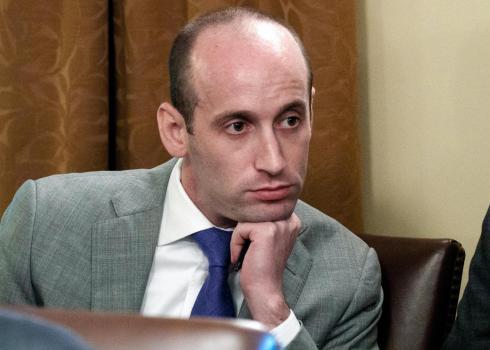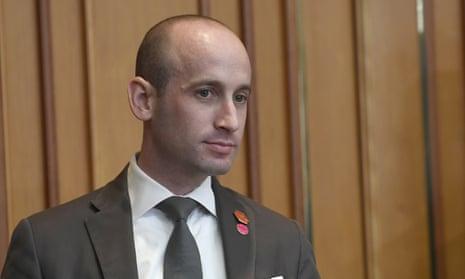Stephen Miller, founder of America First Legal and one of the most influential architects of former President Donald Trump’s most hardline policies, is once again at the center of national debate. As Trump campaigns for a return to the White House in 2025, Miller has resurfaced with new and even more sweeping ambitions. Critics argue that if Trump is re-elected, Miller will have unprecedented influence to reshape the American legal system and institutional landscape in ways that critics describe as deeply dangerous.

Jean Guerrero, journalist and author of Hatemonger, a book examining Miller’s rise and ideology, warns that Miller is not just a behind-the-scenes adviser. Instead, she characterizes him as a deeply ideological strategist who views immigration and race through a radical lens. Guerrero highlights that Miller’s past influence produced some of the Trump administration’s most controversial and traumatizing policies — including the family separation policy at the U.S.-Mexico border and the so-called Muslim travel ban. Both were widely condemned domestically and internationally as cruel and discriminatory.
But according to Guerrero, Miller’s vision goes far beyond immigration. In his current role at America First Legal, a conservative legal group that mirrors the liberal American Civil Liberties Union in its legal activism, Miller is focused on embedding his worldview into the legal DNA of the United States. His organization has been filing lawsuits aimed at rolling back civil rights protections, affirmative action programs, and other policies he claims unfairly disadvantage white Americans. Guerrero argues that this is part of a broader ideological mission: to construct what she describes as a “white nationalist America.”
New Yorker staff writer Jelani Cobb echoes those concerns. In recent commentary, Cobb has underscored how Miller’s vision represents a systemic attempt to reshape the country’s legal institutions around a single ethno-nationalist agenda. According to Cobb, Miller’s approach isn’t just about policy — it’s about power. It’s about seizing the machinery of the state and using it to entrench a narrow vision of American identity that privileges whiteness and suppresses dissent.

One of the more alarming aspects of Miller’s strategy, according to both Guerrero and Cobb, is his reported plan to overhaul the U.S. Department of Justice. Sources close to Miller suggest he is laying the groundwork for an internal purge of civil servants and attorneys seen as insufficiently loyal to Trump’s ideology. The idea is to replace them with political operatives who would help enforce a legal agenda aligned with “America First” principles. This would likely include prosecuting political enemies, eroding the independence of the judiciary, and using federal power to enforce ideological conformity.
Critics argue that such a move would represent a collapse of the traditional separation between politics and law in the United States. It would blur the lines between partisan ambition and the rule of law, potentially turning the DOJ into an instrument of political retaliation rather than justice. For many legal scholars, such developments would signal a democratic backslide — not unlike authoritarian trends seen in countries such as Hungary and Turkey, where the judiciary has been co-opted to serve ruling parties.
Miller’s defenders argue that his actions are necessary to correct what they see as years of liberal overreach in federal institutions. They believe that progressive policies, particularly those around diversity, immigration, and gender, have eroded the country’s founding principles. They see Miller’s legal efforts as a necessary counterweight to what they view as a biased and activist bureaucracy.
But Guerrero and Cobb remain unconvinced. They argue that behind the rhetoric of “restoring fairness” lies a much darker intent: a reshaping of American society that excludes rather than includes. Miller’s playbook, they say, is not about law and order — it is about control. If Trump regains power in 2025, they warn, the country could be on the verge of a transformation that is legal in form but authoritarian in substance.
As the election draws nearer, the question becomes whether the American public will recognize the stakes. Will they view Miller as a necessary enforcer of conservative values or as a danger to the democratic system itself? One thing is clear: Miller is not retreating into the background. He is preparing for what could be his most consequential role yet — and the nation may soon feel the impact.






